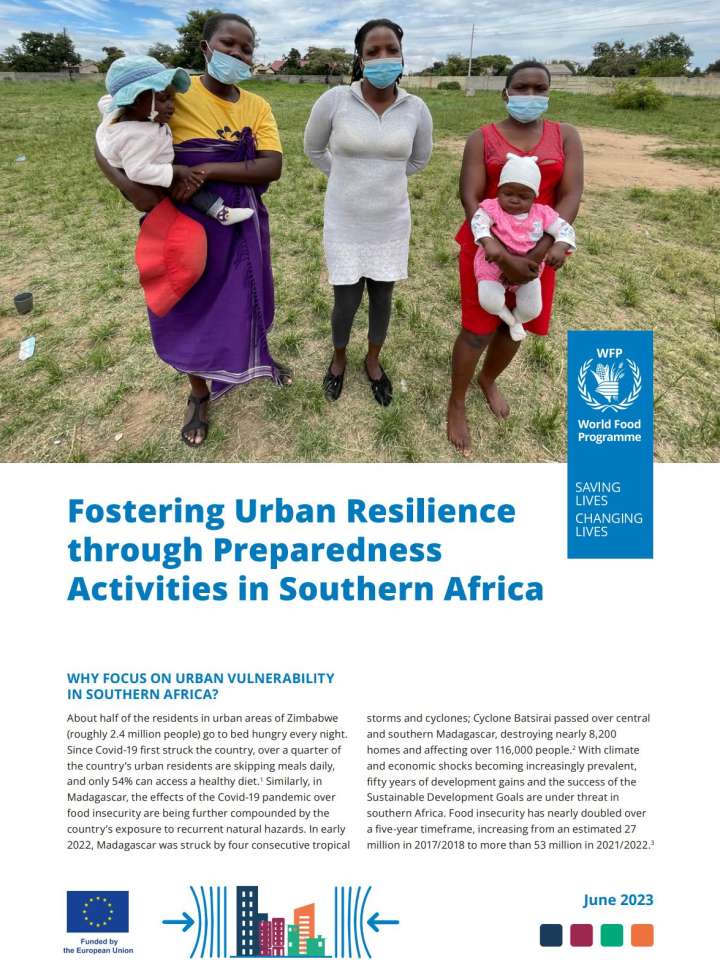Fostering community resilience through preparedness activities in Southern Africa
These reports describe WFP's Regional Urban Preparedness Project in Lesotho, Madagascar, Mozambique, and Zimbabwe, focusing activities in 12 urban areas. With poverty, inequality, and risks increasingly concentrating in cities, the burden of food insecurity and malnutrition is gradually shifting from rural to urban areas. WFP is adapting its efforts to meet urgent food and nutrition needs and build resilience in urban areas. Funded by the Directorate-General for European Civil Protection and Humanitarian Aid Operations (DG ECHO), the project aims to build a common understanding on the specific characteristics of urban vulnerability and essential needs in the region, and strengthen country capacity by providing partners, local governments, and national institutions with a set of tools to better prepare for responding to shocks in urban areas.
Through comprehensive research, the project provides insights into main hazards affecting selected urban locations, identifies ultra-vulnerable populations and their locations, assesses essential needs, and promotes coordination among national governments, local authorities, and stakeholders in disaster risk management, social protection, and the humanitarian sectors. It also fosters intra-regional collaboration for improved urban preparedness. The reports comprise a general overview of the 'Fostering community resilience through preparedness activities in Southern Africa' project, an overview of the project methodology, and country briefs for Lesotho, Madagascar, Mozambique, and Zimbabwe.
Explore further
